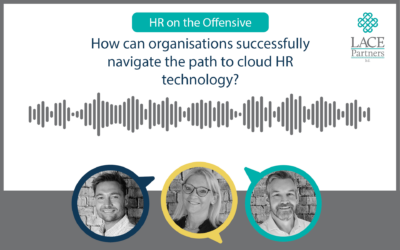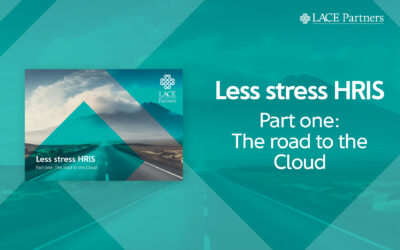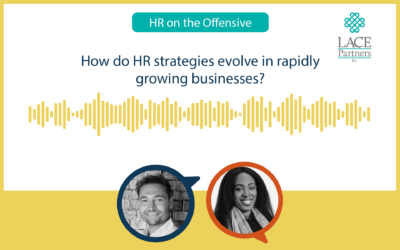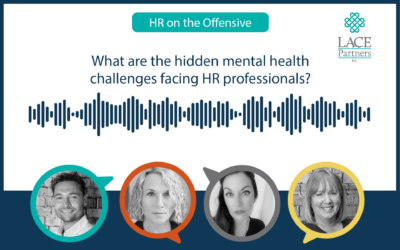Listen to the audio version of the article:
In today’s blog, we asked a group of our Gen Z colleagues to ‘takeover’, to reach out to their Gen Z friends and colleagues to uncover the values and preferences that define the workplace experience for newest employee generations. They discuss the insights gained from their survey (completed by 41 participants) to help employers understand how to engage and empower Gen Z at work.
I am most motivated by…
- Happiness at work 66.7%
- Passion for what I am doing 64.3%
- Ambition and proving myself 61.9%
- Meaningful work 54.8%
- My purpose and my desire to make a difference 45.2%
- Job duties 4.8%
- Other 2.4%
Work-life balance
Maintaining a work-life balance is a prevalent post-pandemic mantra espoused by businesses, and sought by employees. At LACE, we’ve previously investigated businesses’ attempts to support their people through initiatives such as four-day working weeks as part of the employee value proposition (EVP) to provide work-life balance for employees. We’ve discussed the importance of having engaged workforce and the productivity gains that can be harnessed through our EX revolution campaign. We’ve even debated the return of protirees and the impact that delivering a flexible approach to work-life balance can have on talent attraction for more experienced workers. But what about Gen Z? How did our respondents feel when asked if they were confident in finding a good work-life balance?
I am able to maintain a healthy work-life balance:
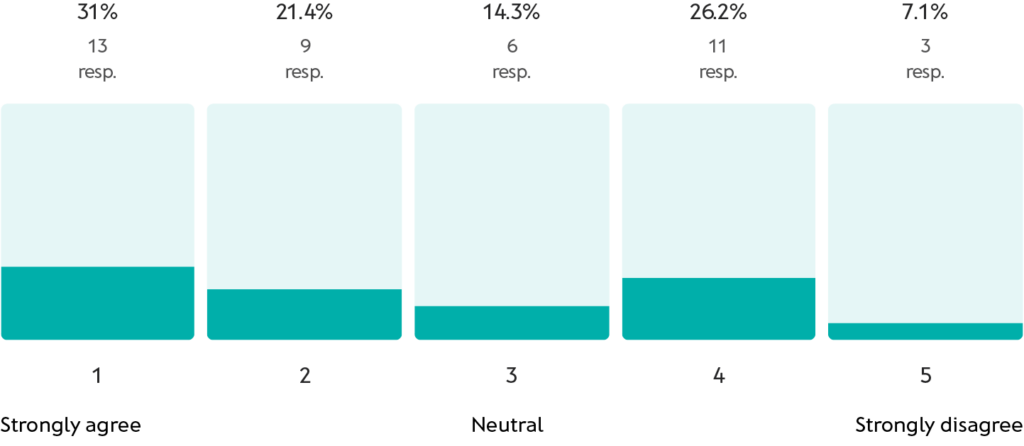
53% of our Gen Z respondents felt they could maintain a good work-life balance, but a further 30% said they struggled to achieve this balance, highlighting this as an area that employers need to maintain focus on. Interventions such as promoting flexible working arrangements and the provision of mental health support remained a priority, as discussed on our podcast about wellbeing and EX with Gethin Nadin late last year, as well as on our blog about the impact of poor wellbeing with Deirdre O’Shea, Associate Professor of Work and Organisational Psychology at the University of Limerick. However, we need to strike a balance, as those entering the workforce for the first time may find that being ‘onsite’ as a requirement accelerates and supports their onboarding and early learning.
Support from line managers
We’ve previously discussed the role of line managers and their importance in driving positive experiences in several podcasts (including this one with Tim Ringo) and blogs, but how did the respondents of our survey describe their relationships with line managers?
I feel supported by my line manager:
- Very often 40.5%
- Often 38.1%
- Sometimes 11.9%
- Rarely 9.5%
- Never 0%
There’s no doubt that the relationship between Gen Z and their line managers plays a critical role in their workplace experience and encouragingly, 78% of Gen Z employees felt supported by their line managers, stating that they value communication, backing, regular check-ins and feedback from their line managers. Managers who empowered their Gen Z employees to voice their opinions and take on new challenges, helping enhance their development, were regarded more favourably. As Anna Rasmussen pointed out in our podcast, part of our EX revolution campaign, “employees that have regular one-to-one conversations with their managers are three times more engaged than those that don’t.” Creating a positive employee experience and fostering a sense of trust and collaboration within teams at such an early stage of a career is vital in forging the soft skills that become so integral to developing tomorrow’s people managers. But, in the podcast, Anna also discusses how it is important that these conversations do not become too formulaic; an emphasis must be placed on keeping these interactions engaging, fluid, inspiring but also focused on the development of the individual and their career progression.
Additional support alongside that of the line manager is also to be encouraged: buddy programmes during onboarding, traditional and reverse mentoring relationships (discussed in our recent podcast on the advantages and approaches for mentoring) and participation in communities of practice can be powerful.
Gen Z and growth
Providing opportunities for upskilling, growth, learning, and development is another way to engage Gen Z in the workforce. Our survey revealed that Gen Z values upward and lateral career progression, suggesting that role diversity and the acquisition of skills are just as important as moving up the career ladder and pay progression.
Transparency in the workplace in relation to salary and career progression is important to me:
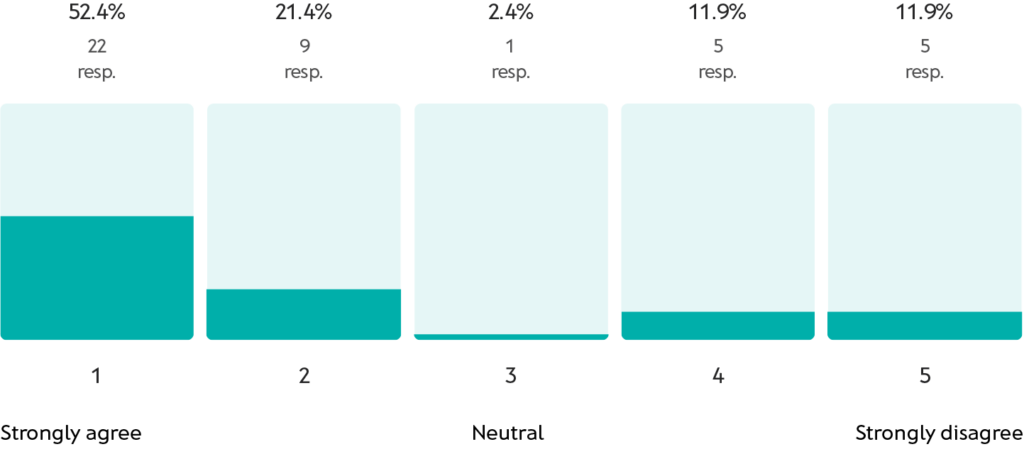
To find this balance, employers need to provide clear pathways for career advancement and development and that they compensate Gen Z to reflect their skills, qualifications, and contributions; this, in turn, will help attract and retain Gen Z talent. We touched on this in our recent blog, looking at the conversations that businesses are having in relation to strategic workforce planning (SWP). Gen Z may need support and encouragement to build a broader set of skills and build a CV that demonstrates a breadth of experiences, but line managers and organisations will need to be equipped to enable that to happen. New ways of formal learning, career planning and novel approaches to skills builds will all have to be considered.
Company culture
Our survey considered whether company culture is a determining factor when engaging Gen Z in the workplace, and the overwhelming majority (76%) of the respondents said they view it as the main factor influencing their decision to join a company.
Company culture is important to me:
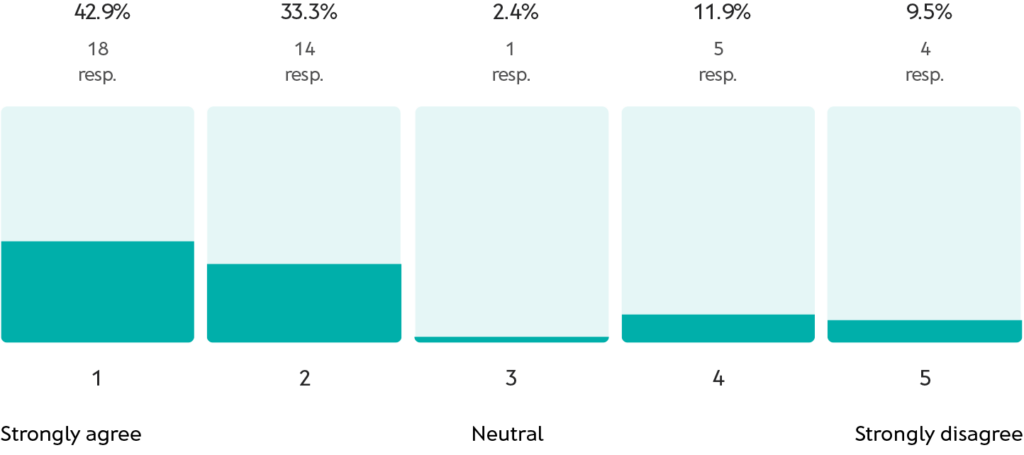
Respondents in the survey suggested that, to appeal to Gen Z, employers should create a positive and inclusive culture that promotes collaboration, diversity, and a sense of belonging among employees, something our director Aaron Alburey touched on in a blog about EX, including a ‘360 degree view of employees’ experience visible on the blog itself and which formed the basis of discussion at a CPO forum we ran in 2023. It is clear that with HR taking the front seat in ‘driving employee experience’, there are opportunities to achieve greater engagement and retention among Gen Z.
Future vision of the company
Creating a culture of transparency and being clear about the future vision of the company is our final point on how to lead Gen Z effectively, with 50% of our respondents agreeing that this is important to them. With the world of work regularly evolving, providing clarity and direction can help enhance engagement with Gen Z; it is also a way to create alignment with organisational values, cultivate trust and empower them to contribute to the company’s long-term success in a tangible way. In our holistic employee experience model, we outline the value of cultural alignment and purpose to deliver amazing experiences for all employees. For organisations looking to build engagement among their Gen Z employees, demonstrating purpose and sense of alignment can also help unlock their creativity and innovation (check our podcast with our friends at Dragonfish).
Our holistic employee experience model also touches on the impact of the work environment and ways of working (particularly digital experience) on our workplace experience. This focus enables us to ensure that Gen Z employees stay connected and engaged with the company culture, especially where hybrid roles are commonplace. Gen Z respondents told us that they value opportunities to form connections with colleagues, especially post-COVID 19 where remote working became the norm.
I value understanding the future vision and direction of my organisation:
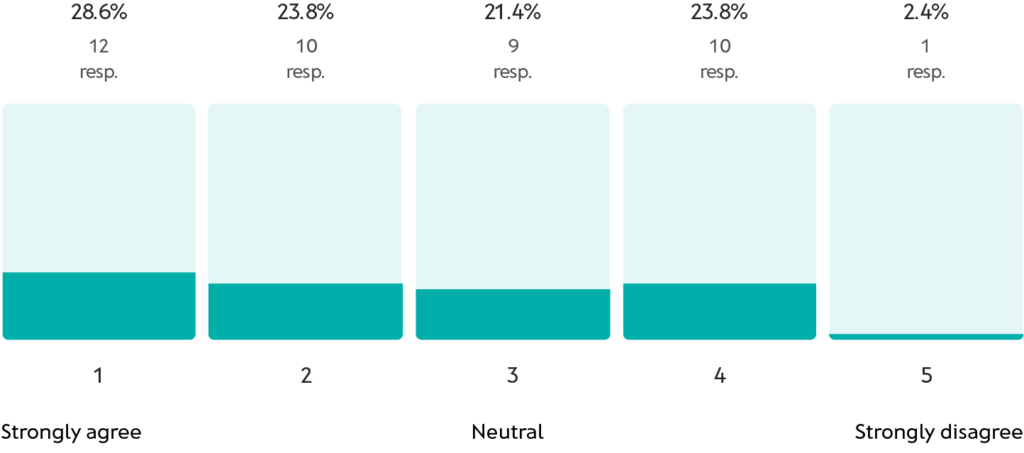
The future for Gen Z at work with Gen Z expected to make up 27% of the workforce by 2025, leading, developing and engaging them well will continue to remain a high priority for employers. Feedback from our survey has shown that employers need to invest in supporting individuals and maintaining a positive and inclusive company culture, if they are to attract and retain Gen Z effectively. Although finding this balance will bring its challenges, by understanding the values and preference of Gen Z employees, employers have an opportunity to be innovative with their employee engagement, inspiring the next generation of the workforce.
If you’d like to talk to us about your current talent and skills development strategies for the next generation entering your workforce, reach out to us and tell us how we can help you using the form below.


